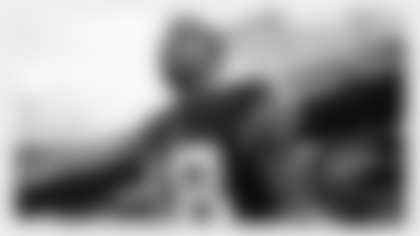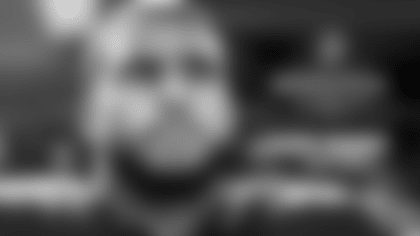One day wide receiver Josh Doctson was visiting the Kigali Genocide Memorial, paying tribute to the hundreds of thousands of lives lost in Rwandan Genocide in 1994, and the next he was exploring Akagera National Park on Rwanda's eastern border, camping alongside hippos on the shores of Lake Shakani.
Then Doctson and his girlfriend, Haille Schliesing, traveled to the northwestern tip of the country to check out Volcanoes National Park before helicoptering back to the capital city of Kigali. It was during that flight when Rwanda's "land of a thousand hills" nickname made perfect sense.
What started as a trip to track silverbacks morphed into a "packed" excursion for Doctson, who returned to Redskins Park for offseason workouts in mid-April with a refined perspective, not just about his own life but about the lives of those he met along the way.
"We went to the genocide museum and we saw a lot of things I wasn't really aware of: how the genocide started, what happened in the genocide and what's going on now," Doctson said. "[Rwanda] is a very, very safe place. … Infrastructure is amazing, they rebuilt everything, people moving, energy's high. We loved it. I really don't know what other trip can top Rwanda right now. I really want to keep going back and back and try to figure out how to give opportunities to these people who are in need."
Doctson has long been interested in visiting Africa, though initially he wanted to go to Ghana to learn about the African Slave Trade. But during some locker room chats with tight end Vernon Davis in September, Doctson heard about Davis' experiences following silverbacks, also known as adult male gorillas, in Uganda.
For the next several months Doctson and Haille, whose family roots trace back to East Africa, kept digging, and they gravitated more and more towards Rwanda because of its history and culture. This would be Doctson's latest offseason expedition.
The couple's 12-day trip in the middle of March included little technology aside from two cameras, one for Doctson to capture video and the other for Haille to snap photos. Together they documented their stay at the Hôtel des Mille Collines -- made famous after more than 1,000 Tutsis took refuge there during the Rwandan Genocide -- and their walkthrough of the Kigali Genocide Memorial. Doctson said both historical landmarks were "hard to put into words."
Just 25 years after this gruesome mass slaughter, Rwanda has evolved into, as Doctson sees it, a united and self-sufficient country with unique world appeal. They were able to live alongside monkeys and hippos during their safari at Akagera National Park and witnessed dozens of gorillas in their natural habitat during a hike at Volcanoes National Park. Flying back to the capital of Kigali, they saw tea trees and banana plants littered over seemingly endless roaming hills.
"It was such a self-sustainable place that was untouched," Doctson said. "Everything in its natural habitat while people are living with it."
Doctson eventually wants to explore the entire continent, but he's grateful to have begun his African journey in Rwanda, where there are weekly 5K runs, monthly street cleanings and fines for using plastic bags. The food is seldom processed -- "probably the freshest food I've ever eaten before," Doctson said -- and the money from activities such as safaris and gorilla tracking is recycled into the government.
One day he said he'll return to Rwanda, where he hopes to create another self-sustaining venture that adds to the country's independence.
"Everybody appreciates life a little more -- maybe a lot more -- and they appreciate each other," Doctson said. "It's a genuine unified country for sure. And it's healthy. It's not just for the animals, it's collectively for everyone. You want to keep your things cleans, you want people to come visit, you want to leave an impression on people from other states, continents, countries, like 'Wow, man, that place was doing it right.' I want to come back again.'"















